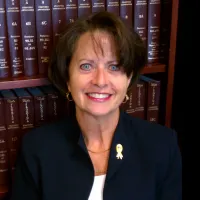Eldercaring Coordination: Alternative Dispute Resolution Focused on Elders

Imagine the following scenario: instead of relaxing on Thanksgiving, your grandfather is being taken to a mental hospital because he had a dementia episode and your uncle called the police to protect the family. Then imagine: come Christmas, your dad and uncle get into a fight over who is going to start taking care of your grandfather in his diminishing state, and your dad ends up getting arrested for punching your uncle. Now your uncle won’t let you or any other family member visit your grandfather, he has gained full control over his bank accounts, and he has filed for guardianship over him. Unfortunately, far too many people don’t need to imagine such a scenario because they have experienced something similar in their own family. And for many of them, what follows in court is just as, if not more, stressful a situation than what brought them there in the first place.
The court’s adversarial process engenders hostility between parties, above and beyond existing tensions, which can affect the physical and emotional health of our aging loved ones and erode relationships between all other family members. While this is not the court’s goal, this is a common outcome due to the confrontational style of a typical trial proceeding. Thankfully, this is not the only option.
Eldercaring Coordination is an innovative dispute resolution process for high-conflict cases, where a specialized coordinator assists elders, legally authorized decisionmakers, and others who participate by court order or invitation to resolve family disputes in a manner that respects the elder’s needs for autonomy and safety. Eldercaring Coordination complements—but doesn’t replace—the services of mediators, financial advisors, lawyers, therapists, health care providers, or any other professionals. However, the process provides a more supportive and holistic atmosphere for families to work through their difficulties.
Reflecting, again, on that scenario: if family members cannot agree on issues relating to elder care and needs, then the court still ends up making those decisions. But because those decisions really belong to the family, an Eldercaring Coordinator would work with your dad and uncle, in addition to your grandfather, to facilitate more effective communication, negotiation, and problem-solving skills, and to help them come to agreed-upon decisions that are best for everyone. For example, if your dad has concerns about your grandfather’s finances and your uncle’s handling of those finances, these issues could be addressed with transparency and in private through Eldercaring Coordination, instead of introducing sensitive records as evidence in a court proceeding.
Eldercaring Coordination is one of a number of efforts being made to provide families with services that address their needs more specifically than the traditional adversarial process. The Family Justice Initiative, led by IAALS, the National Center for State Courts, and the National Council of Juvenile and Family Court Judges, and adopted by the Conference of Chief Justices, provides 13 Principles to help courts improve the way family issues are handled. Principle 1 highlights the court’s responsibility to support parties in addressing underlying conflicts collaboratively during their case and provide parties with the tools to resolve disputes in the future. This entails making available a variety of alternative dispute resolution processes that could include Eldercaring Coordination.
The more a service is tailored to a party’s specific issues, the more likely those issues will be fully addressed. Eldercaring Coordination’s direct focus on elders and their legally authorized decisionmakers in high-conflict cases helps families work together to regain harmony and make decisions for the elder that all family members can agree on. More information about Eldercaring Coordination is available here.

